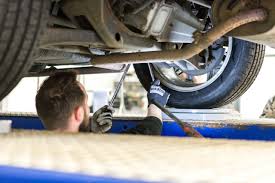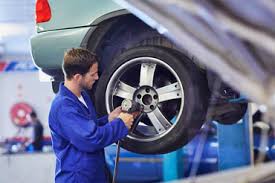Repair Information
How to Choose a Repair Shop
What should I look for when choosing a repair shop?
- Ask for recommendations from friends, family, and other people you trust. Look for a repair shop before you need one to avoid being rushed into a last-minute decision.
- Shop around by phone and online for the best deal, and compare warranty policies on repairs.
- Ask to see current licenses if state or local law requires repair shops to be licensed or registered. Also, your state Attorney General’s office or local consumer protection agency may know whether there’s a record of complaints about a particular repair shop.
- Make sure the shop will honor your vehicle’s warranty.
How to Choose a Technician
Is one technician better than another?
- Look for shops that display various certifications — like an Automotive Service Excellence seal. Certification indicates that some or all of the technicians meet basic standards of knowledge and competence in specific technical areas. Make sure the certifications are current, but remember that certification alone is no guarantee of good or honest work.
- Ask if the technician or shop has experience working on the same make or model vehicle as yours.

How to be get personal Auto Repairs recommendations
So you drive around in a model of car that not many own or drive. So how do go about getting personal recommendations? Well it is now that much easier. Just email or text friends, relatives and work colleagues to ask them if they know of anyone who drives a similar model and make of car as yours locally. Give them your details as well as saying you are looking for a reliable garage to service or to do some auto repairs on your car in the local area. If they don’t know of anyone,get them to ask their friends. They in turn may know someone. As the saying goes, you are no more than 6 people away from the person you want to contact or speak to. Try it out. It works. You’ll be amazed at the results.

Types of Car Repair Shops
Car repair shops can be categorized as one of three main types. Each has its strengths and weaknesses:
- Car Dealerships: Mechanics at the dealership will be very familiar with the make and model of your car. These mechanics often receive specialized training. Repairs at dealerships tend to be quite expensive. Many car owners limit the use of dealership mechanics to just warranty-related repairs.
- General Repair Shops: While parts often cost more at service stations, as compared to dealerships, labor often is less expensive. However, finding a skilled, honest, and affordable mechanic can sometimes be tricky.
- Auto Repair Chains: These types of repair shops tend to focus on one thing, whether it is routine oil changes, mufflers, or brakes. Some chains offer a complete list of services. Chains can usually offer a relatively low price because they work on such a high volume of cars. These types of chains are best for specific types of routine maintenance.

How to Talk to Your Mechanic
Getting the right repairs at a fair price depends partly on communicating with your mechanic. Here’s what to say and to expect:
- Describe the problem fully. Provide as much information as possible. Write down the symptoms and when they occur. If possible, talk directly to the mechanic who will be working on your car.
- Don’t offer a diagnosis. Avoid saying what you think is causing the problem. You may be on the hook for any repairs the shop makes at your suggestion, even if they don’t solve the problem.
- Request a test drive. If the problem occurs only when the car is moving, ask the mechanic to accompany you on a test drive.
- Ask for evidence. If you’re not comfortable with the diagnosis, ask the shop to show you. Worn brake pads or rusted exhaust pipes are easy to see. Don’t let the mechanic refuse your request by saying that his insurance company doesn’t allow customers into the work area. Insist on evidence anyway.
What not to say to your mechanic!
Let’s start with what you shouldn’t say to a mechanic. It’s not that we want you to sound ignorant but it’s important you don’t inadvertently say things that could end up costing you more money. Here’s a few tips on what not to say:
- Leave the technical talk to the mechanic, don’t try to diagnose the solution yourself, instead just explain what the situation is and let the mechanic come up with possible deductions.
- If you need something in particular checked out make sure you let the mechanic know. Just because your car is going in for a service, that doesn’t mean every single component on your vehicle will be checked and tested.
- If you have a particular problem you would like investigated, actually show the mechanic where it is on the car, or take them for a drive to hear the suspect noise. Telling the receptionist at the counter could lead to misinterpretation.
- Never tell the mechanic to ‘just do what is needed’.